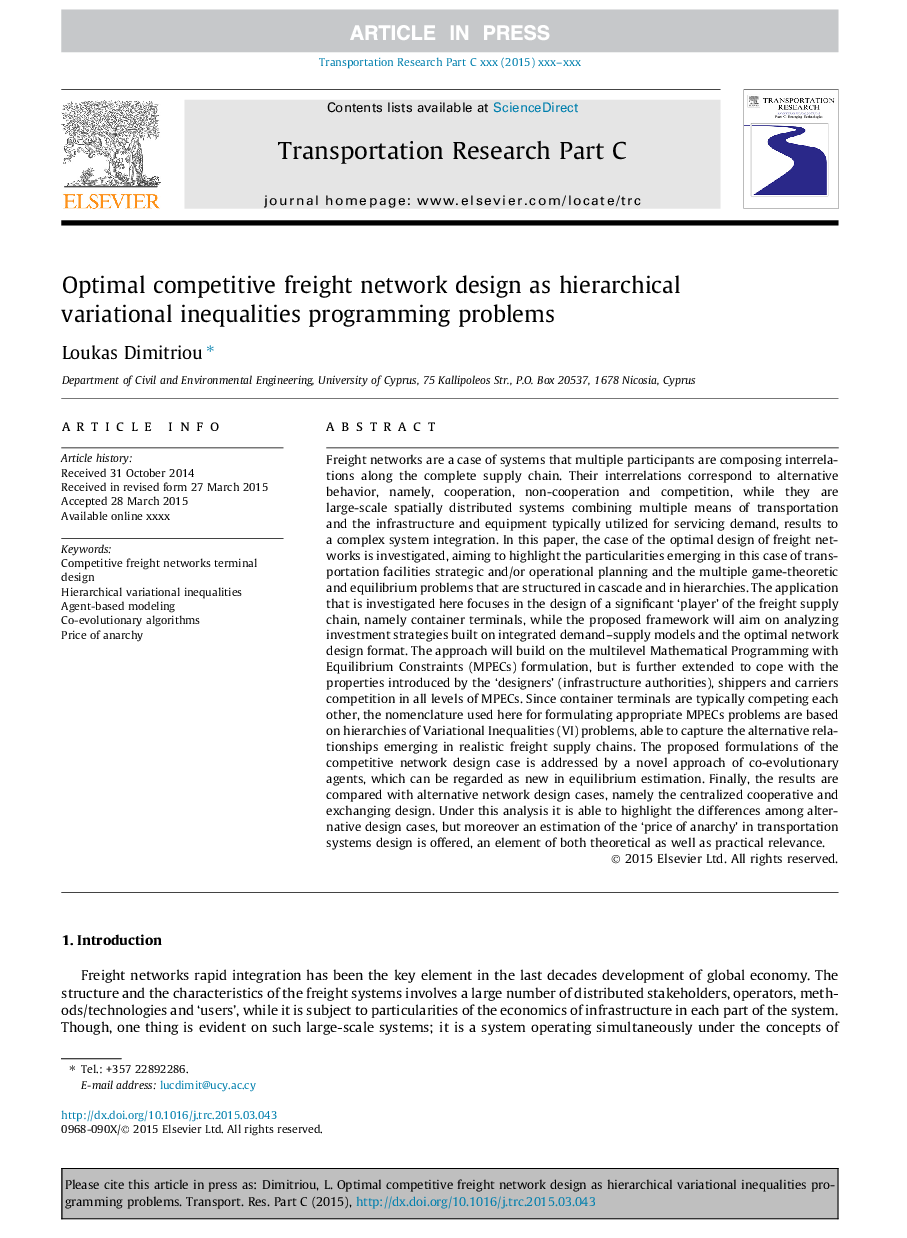| Article ID | Journal | Published Year | Pages | File Type |
|---|---|---|---|---|
| 6936780 | Transportation Research Part C: Emerging Technologies | 2015 | 23 Pages |
Abstract
Freight networks are a case of systems that multiple participants are composing interrelations along the complete supply chain. Their interrelations correspond to alternative behavior, namely, cooperation, non-cooperation and competition, while they are large-scale spatially distributed systems combining multiple means of transportation and the infrastructure and equipment typically utilized for servicing demand, results to a complex system integration. In this paper, the case of the optimal design of freight networks is investigated, aiming to highlight the particularities emerging in this case of transportation facilities strategic and/or operational planning and the multiple game-theoretic and equilibrium problems that are structured in cascade and in hierarchies. The application that is investigated here focuses in the design of a significant 'player' of the freight supply chain, namely container terminals, while the proposed framework will aim on analyzing investment strategies built on integrated demand-supply models and the optimal network design format. The approach will build on the multilevel Mathematical Programming with Equilibrium Constraints (MPECs) formulation, but is further extended to cope with the properties introduced by the 'designers' (infrastructure authorities), shippers and carriers competition in all levels of MPECs. Since container terminals are typically competing each other, the nomenclature used here for formulating appropriate MPECs problems are based on hierarchies of Variational Inequalities (VI) problems, able to capture the alternative relationships emerging in realistic freight supply chains. The proposed formulations of the competitive network design case is addressed by a novel approach of co-evolutionary agents, which can be regarded as new in equilibrium estimation. Finally, the results are compared with alternative network design cases, namely the centralized cooperative and exchanging design. Under this analysis it is able to highlight the differences among alternative design cases, but moreover an estimation of the 'price of anarchy' in transportation systems design is offered, an element of both theoretical as well as practical relevance.
Related Topics
Physical Sciences and Engineering
Computer Science
Computer Science Applications
Authors
Loukas Dimitriou,
